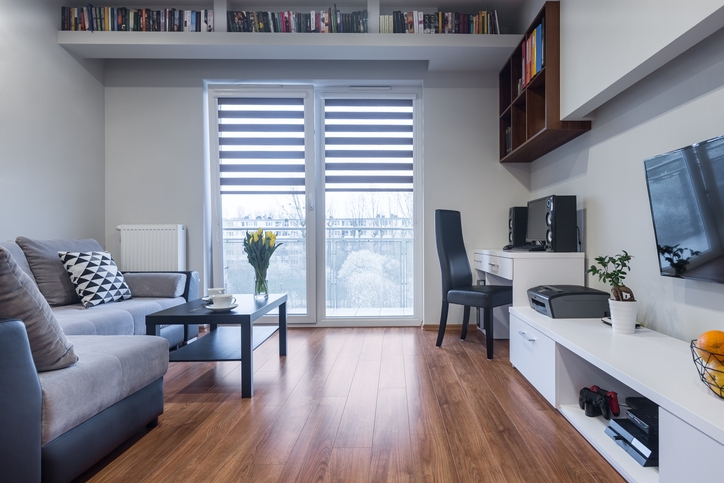Advertisement
Study: Apartments Growing Smaller and Pricier

If the average renter is feeling a greater sense of claustrophobia coupled by fewer dollars in his or her wallet, that’s because their residential spaces are shrinking while their rents are increasing.
According to a data analysis by RENTCafé of the top 100 cities with the largest rental stock, the average apartment has seen a 52-square-foot reduction over the last 10 years. Today, an average apartment measures 941 square feet. The smallest apartments are found in Seattle (711 square feet), Manhattan and Chicago (both at 733 square feet), while Florida’s capital city of Tallahassee boasts an average apartment size of 1,038 square feet.
Alas, renters are getting less bang for their buck: rents in newly-built apartments have increased by 28 percent, but their size is five percent smaller compared to 2008. Not surprisingly, the most expensive housing markets saw the greatest rent hikes: Denver’s apartment rents skyrocketed by 84 percent in the last 10 years while the average size of apartments decreased by 11 percent. Other notable price hikes include Seattle (rents up by 74 percent in 10 years) and San Jose (rents up 63 percent in 10 years).
About the author





